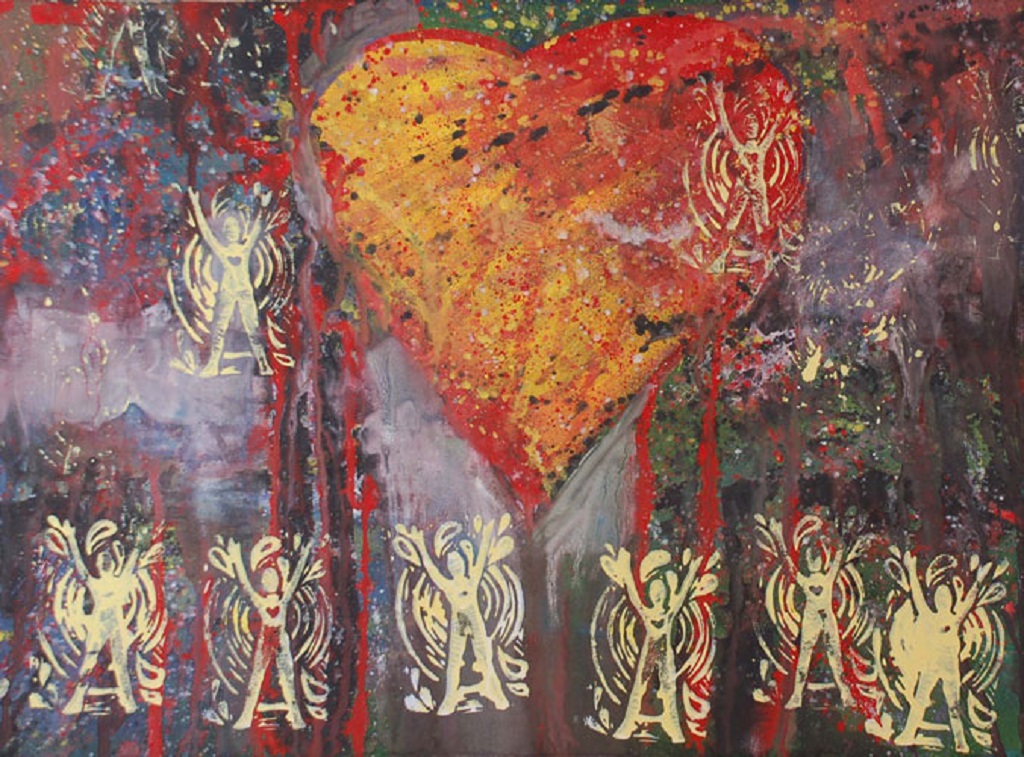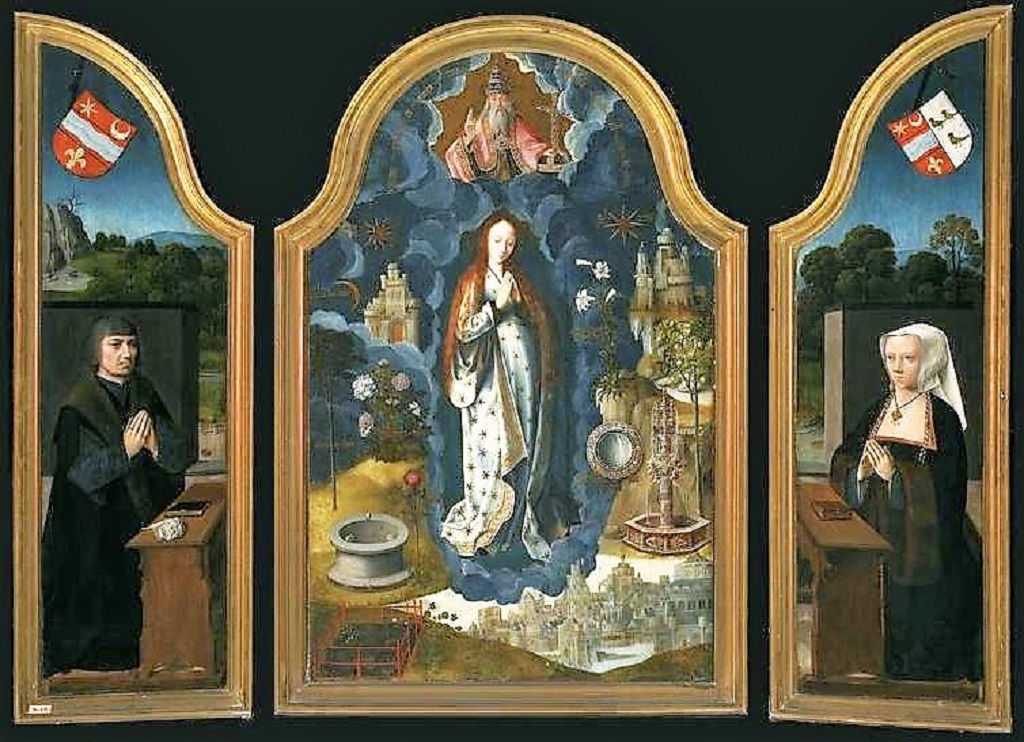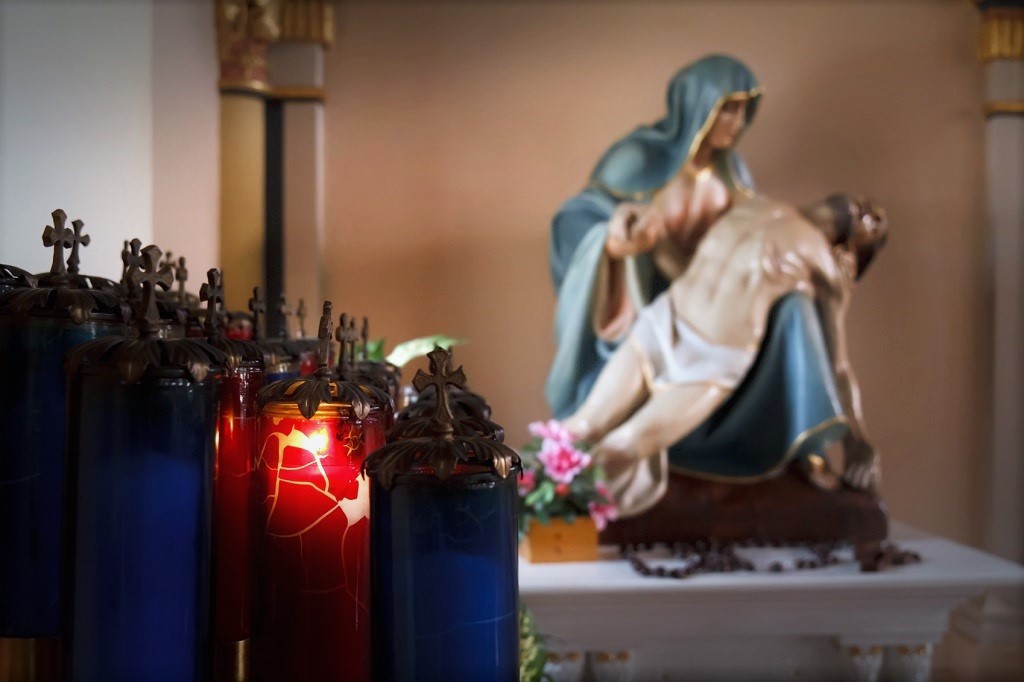“My God, my God, why have you abandoned me” (Ps 22:2)?
These words of Jesus spoken while hanging on the cross are among the most disturbing words in the Gospels. Jesus’ cry of abandonment from Psalm 22 is troublesome. Did Jesus give up trust in his most dear Father during the crucifixion? Did Jesus actually yield to despair on the cross? How can we understand this desperate cry?
Vatican Council Two’s document “Church in the Modern World” helps understand the cry. The document recalls our Christian belief that Jesus’ divinity did not eclipse the full experience of his humanity: “For by his Incarnation the Son of God united himself in some fashion with every man. He worked with human hands, He thought with a human mind, He acted by human choice, and loved with a human heart. Born of the Virgin Mary, He has truly been made one of us, like us in all things except sin”(#22).
As fully human Jesus on the cross tasted the depths of human suffering on every level – physical, psychological and spiritual.
Recall Jesus was undergoing the most painful and shameful death devised by the Roman authorities. Adding to the shame, He was crucified between two known criminals.
Recall also that Jesus was alone, having been rejected by everyone: religious authorities and fellow citizens, disciples and friends. It is poignant to recall that of his chosen twelve apostles one betrayed him, another denied him and all abandoned him. Only his mother and the two Marys were at the cross.
And perhaps most painful of all, Jesus was a failure. Jesus failed to accomplish the mission given him by his Father — preaching the Good News of the Kingdom of God. Even his apostles did not understand this message.
And on the cross Jesus felt abandoned — he even felt abandoned by his Father: “My God, my God, why have you abandoned me?”
In Holy Week we seek the special grace of being united to Jesus as we ourselves cope with the suffering in our troubled world and in our personal lives. Like Jesus we may feel abandoned by God. But like Jesus we are not alone. Just as the Father was with Jesus transforming Jesus through suffering, so Jesus is now with us transforming us!
And don’t we Christian move toward maturity in our faith as we embrace our crosses and unite them with with Jesus’. I have learned this truth slowly. As I have brought my sufferings to Jesus and dialogued with him on similar sufferings, I have been transformed, experiencing weakness to strength through faith.
Paul catches the heart of faith for Jesus and for us: “He humbled himself, becoming obedient to the point of death, even death on a cross. Because of this, God greatly exalted him and bestowed on him a name which is above every name, that at the name of Jesus every knee should bend”(Phil 2:8-10).
 Dick Hauser a Jesuit priest, born in Milwaukee in 1937. The oldest of six children, entering the Jesuits in 1955 and teaching in the theology department at Creighton since 1972. “My primary interest is in contemporary Christian spirituality. I’ve written three spirituality books: In His Spirit: A Guide to Contemporary Spirituality; Moving in the Spirit: Becoming a Contemplative in Action, both published by Paulist Press and Finding God in Troubled Times: The Holy Spirit and Suffering, published by Loyola Press.”
Dick Hauser a Jesuit priest, born in Milwaukee in 1937. The oldest of six children, entering the Jesuits in 1955 and teaching in the theology department at Creighton since 1972. “My primary interest is in contemporary Christian spirituality. I’ve written three spirituality books: In His Spirit: A Guide to Contemporary Spirituality; Moving in the Spirit: Becoming a Contemplative in Action, both published by Paulist Press and Finding God in Troubled Times: The Holy Spirit and Suffering, published by Loyola Press.”


 Edward A. Morse if a professor of law at Creighton University. He says, “My wife and I have five children. Two are Creighton alumni, two are Creighton students, and one is still at home with us. We live on the farm on which I was raised and continue to help operate part of it. These agrarian roots influence our lives in various ways, and sometimes that influence can be seen in these reflections.” [This reflection is used with permission from Creighton University’s Online Ministries.]
Edward A. Morse if a professor of law at Creighton University. He says, “My wife and I have five children. Two are Creighton alumni, two are Creighton students, and one is still at home with us. We live on the farm on which I was raised and continue to help operate part of it. These agrarian roots influence our lives in various ways, and sometimes that influence can be seen in these reflections.” [This reflection is used with permission from Creighton University’s Online Ministries.]
 Today’s guest blogger is Michael Kavan, currently the Associate Dean for Student Affairs at Creighton University School of Medicine. He is also a psychologist and a Professor of Family Medicine and Professor of Psychiatry. A faculty member at Creighton since 1988, Kavan teaches classes on a variety of topics related to behavioral medicine, depression, anxiety, and interviewing skills for medical students and residents. He also practices psychology at a family medicine clinic.
Today’s guest blogger is Michael Kavan, currently the Associate Dean for Student Affairs at Creighton University School of Medicine. He is also a psychologist and a Professor of Family Medicine and Professor of Psychiatry. A faculty member at Creighton since 1988, Kavan teaches classes on a variety of topics related to behavioral medicine, depression, anxiety, and interviewing skills for medical students and residents. He also practices psychology at a family medicine clinic.
 Author Nancy Shirley is a grateful child of God, wife, mother, nana, and nursing professor. My husband and I met at church and have walked this extraordinary journey together experiencing CEC in 2004 and growing more committed to our beliefs. In addition to my husband, I am blessed with a wonderful daughter and son, who in turn are blessed with wonderful spouses. My son’s four children bring us all endless joy and delight. I am on the faculty at Creighton having taught nursing here from 1980-1989 and returning “home” in 2003 to teach nursing at all levels and to administer the undergraduate program. [Today’s reflection is used with permission from Creighton University.]
Author Nancy Shirley is a grateful child of God, wife, mother, nana, and nursing professor. My husband and I met at church and have walked this extraordinary journey together experiencing CEC in 2004 and growing more committed to our beliefs. In addition to my husband, I am blessed with a wonderful daughter and son, who in turn are blessed with wonderful spouses. My son’s four children bring us all endless joy and delight. I am on the faculty at Creighton having taught nursing here from 1980-1989 and returning “home” in 2003 to teach nursing at all levels and to administer the undergraduate program. [Today’s reflection is used with permission from Creighton University.]
 I am the Legal Reference Librarian at the Creighton University Law School Library and have been here since August of 2007. I also teach Legal Research to first year law students and Advanced Legal Research to second and third year law students. My wife, Deb, and I have been married since 1970. She grew up in Oklahoma City and I migrated south from southwestern Pennsylvania. God has blessed us with three children and four living grandchildren. I spent the first thirty years of our marriage as a minister so our family moved a lot. We have lived in several states, including Pennsylvania, Oklahoma, Texas, Colorado, and California. We tend to enjoy wherever we happen to be at the time. I enjoy walking, reading, listening to audio books, playing with my Pekingese, Max, and seeing my grandkids grow up. I am a Catholic deacon, having been ordained by Archbishop George Lucas on May 5, 2012. My wife Deb and I are parishioners at St. Gerald in Ralston, Nebraska. [This blog has been generously shared by
I am the Legal Reference Librarian at the Creighton University Law School Library and have been here since August of 2007. I also teach Legal Research to first year law students and Advanced Legal Research to second and third year law students. My wife, Deb, and I have been married since 1970. She grew up in Oklahoma City and I migrated south from southwestern Pennsylvania. God has blessed us with three children and four living grandchildren. I spent the first thirty years of our marriage as a minister so our family moved a lot. We have lived in several states, including Pennsylvania, Oklahoma, Texas, Colorado, and California. We tend to enjoy wherever we happen to be at the time. I enjoy walking, reading, listening to audio books, playing with my Pekingese, Max, and seeing my grandkids grow up. I am a Catholic deacon, having been ordained by Archbishop George Lucas on May 5, 2012. My wife Deb and I are parishioners at St. Gerald in Ralston, Nebraska. [This blog has been generously shared by 



